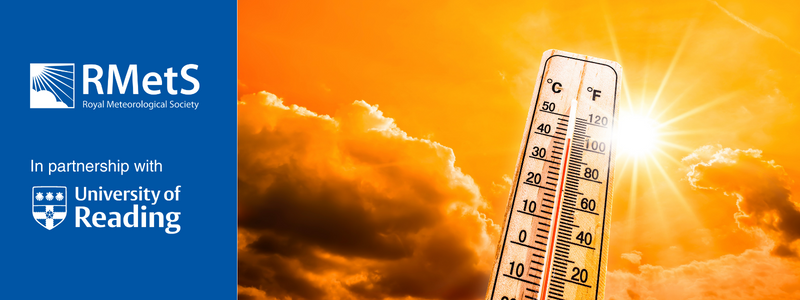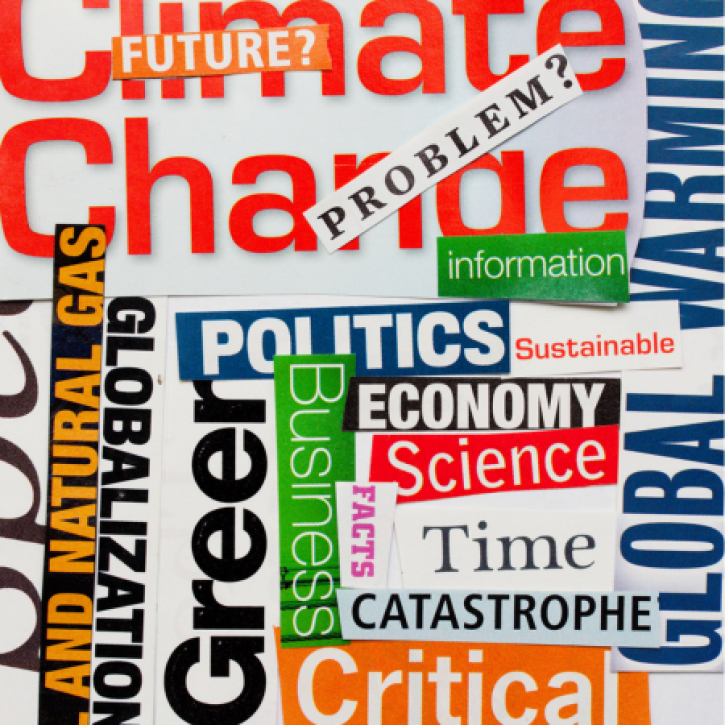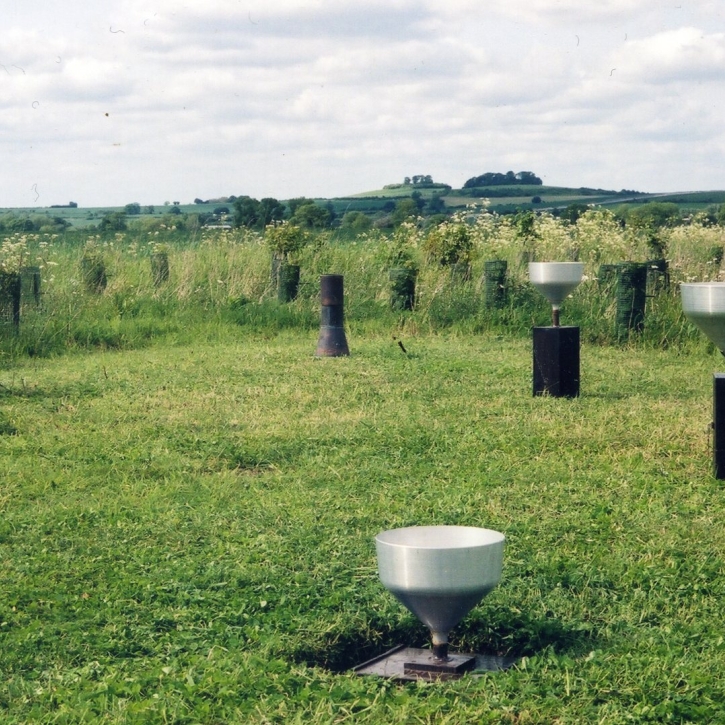

MASTERCLASS | Can’t stand the heat? Climate Change, Thermal Comfort and Health
LOCATION
2022 was the hottest year on record in the UK, being in the top 10 hottest globally. We know with this global heating that heatwaves are increasing in frequency, duration and intensity. For Europe the heatwaves of summer of 2022 can be considered to be the most impactful since that seen for the continent in 2003. This is because of the high mortality rate and infrastructure challenges for example data centers shutting. However, heatwave impacts are subjected to under-reporting across sectors, leading to them being known as invisible or silent killers. Climate Change and Extreme Heat presents a number of health challenges whether this is a rise in death rates in the over 65s, a raised risk of pre-term birth in pregnant mothers or a higher incidence of kidney disease in outdoor workers because of dehydration, which are cross-sectional in nature. In this talk, the discussion focused on how we can move beyond using temperature within heatwaves and the relevance of thermal comfort indices that consider heat stress for sectors including meteorology and health. It moved on to discuss other links between meteorology, climate change and health.
Speaker
Chloe Brimicombe, Post-Doctoral Researcher Wegner Center, University of Graz, Austria
Chloe is a post-doc on the HIGH horizons, an EU horizons project which explores the impact of heat on maternal, infant, child and health worker health. She is finishing her PhD at the University of Reading with ECMWF entitled ‘Too Hot to Handle: The Global Impact of Extreme Heat'. Chloe was awarded the RMetS Malcolm Walker award in 2022 for an outstanding early career researcher for her work on heat early warning systems and science communication, areas she is passionate about.
Responder
Bryony May, Senior Met Office Advisor (Civil Contingencies), Met Office
I joined the newly formed Met Office Advisor (Civil Contingencies) team in 2005, providing hazard advice and services to local emergency responder partners (ie, emergency services, local authorities etc.), both during periods of severe weather and to support risk assessment, preparedness and planning, becoming a Senior Advisor in 2020. As well as helping to manage the team, I now provide similar advice and services to government partners, particularly during periods of severe weather in the UK and internationally, but also to support their risk assessment, preparedness and planning activities. I was involved in introducing extreme heat warnings into the impact-based Met Office National Severe Weather Warning Service in summer 2021.
During my time as a Met Office Advisor, I also undertook an 18-month secondment to the Government Office for Science in 2012/2013, working as a Policy Adviser in their Civil Contingencies & Natural Hazards team, supporting the Government Chief Scientific Adviser, specialising in risk assessment, space weather and other natural hazards and encouraging engagement by Departmental Chief Scientific Advisers in risk assessment and civil contingencies.
I have been a Fellow of the Royal Meteorological Society for 35 years and a Chartered Meteorologist since 1995.
Registration
REGISTRATION IS NOW CLOSED
Masterclass Series Abstract
Continuing our online Meteorological Masterclasses in partnership with the University of Reading, we are pleased to announce a new Masterclass series in “Extreme Summertime Weather Events”.
During this series, three leading experts from the University of Reading will discuss the latest scientific advances for understanding and predicting weather, climate, and its impacts. Topics to be covered include droughts, flash floods, heatwaves and wildfire, biometeorology, and the applications of meteorology for health.
These masterclasses are intended to provide support for professionals working in Meteorology and Climate Science, and its operational applications who wish to remain up to date on recent scientific developments in the field.
Masterclasses will run weekly on Wednesday’s 1st, 8th and 22nd March 2023 from 3 pm to 4.30 pm (UTC), consisting of a presentation followed by the opportunity for questions and discussion with the speaker. Whilst the webinars are part of a series, attendance at all three events is not compulsory.
Sessions will be available as videos for any member who has registered but cannot attend. All registrants will have an option to email questions up to one week after the date of them going live.
2022 was the hottest year on record in the UK, being in the top 10 hottest globally. We know with this global heating that heatwaves are increasing in frequency, duration and intensity. For Europe the heatwaves of summer of 2022 can be considered to be the most impactful since that seen for the continent in 2003. This is because of the high mortality rate and infrastructure challenges for example data centers shutting. However, heatwave impacts are subjected to under-reporting across sectors, leading to them being known as invisible or silent killers. Climate Change and Extreme Heat presents a number of health challenges whether this is a rise in death rates in the over 65s, a raised risk of pre-term birth in pregnant mothers or a higher incidence of kidney disease in outdoor workers because of dehydration, which are cross-sectional in nature. In this talk, the discussion focused on how we can move beyond using temperature within heatwaves and the relevance of thermal comfort indices that consider heat stress for sectors including meteorology and health. It moved on to discuss other links between meteorology, climate change and health.
Speaker
Chloe Brimicombe, Post-Doctoral Researcher Wegner Center, University of Graz, Austria
Chloe is a post-doc on the HIGH horizons, an EU horizons project which explores the impact of heat on maternal, infant, child and health worker health. She is finishing her PhD at the University of Reading with ECMWF entitled ‘Too Hot to Handle: The Global Impact of Extreme Heat'. Chloe was awarded the RMetS Malcolm Walker award in 2022 for an outstanding early career researcher for her work on heat early warning systems and science communication, areas she is passionate about.
Responder
Bryony May, Senior Met Office Advisor (Civil Contingencies), Met Office
I joined the newly formed Met Office Advisor (Civil Contingencies) team in 2005, providing hazard advice and services to local emergency responder partners (ie, emergency services, local authorities etc.), both during periods of severe weather and to support risk assessment, preparedness and planning, becoming a Senior Advisor in 2020. As well as helping to manage the team, I now provide similar advice and services to government partners, particularly during periods of severe weather in the UK and internationally, but also to support their risk assessment, preparedness and planning activities. I was involved in introducing extreme heat warnings into the impact-based Met Office National Severe Weather Warning Service in summer 2021.
During my time as a Met Office Advisor, I also undertook an 18-month secondment to the Government Office for Science in 2012/2013, working as a Policy Adviser in their Civil Contingencies & Natural Hazards team, supporting the Government Chief Scientific Adviser, specialising in risk assessment, space weather and other natural hazards and encouraging engagement by Departmental Chief Scientific Advisers in risk assessment and civil contingencies.
I have been a Fellow of the Royal Meteorological Society for 35 years and a Chartered Meteorologist since 1995.
Registration
REGISTRATION IS NOW CLOSED
Masterclass Series Abstract
Continuing our online Meteorological Masterclasses in partnership with the University of Reading, we are pleased to announce a new Masterclass series in “Extreme Summertime Weather Events”.
During this series, three leading experts from the University of Reading will discuss the latest scientific advances for understanding and predicting weather, climate, and its impacts. Topics to be covered include droughts, flash floods, heatwaves and wildfire, biometeorology, and the applications of meteorology for health.
These masterclasses are intended to provide support for professionals working in Meteorology and Climate Science, and its operational applications who wish to remain up to date on recent scientific developments in the field.
Masterclasses will run weekly on Wednesday’s 1st, 8th and 22nd March 2023 from 3 pm to 4.30 pm (UTC), consisting of a presentation followed by the opportunity for questions and discussion with the speaker. Whilst the webinars are part of a series, attendance at all three events is not compulsory.
Sessions will be available as videos for any member who has registered but cannot attend. All registrants will have an option to email questions up to one week after the date of them going live.





